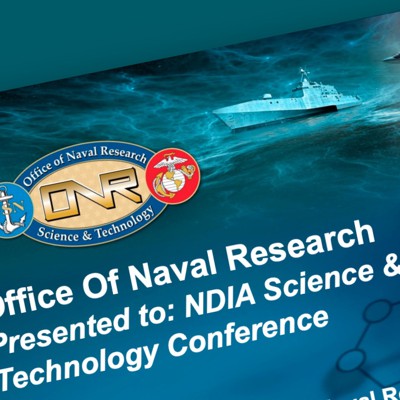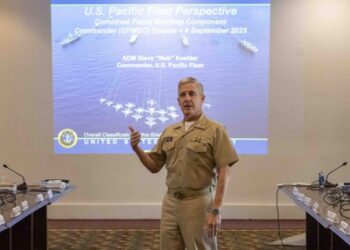Rachel Riley has recently been appointed as the new head of the Office of Naval Research (ONR). She is noted for being an alum of the Department of Government Efficiency (DOGE) and is recognized by current and former military and defense officials for her potential to implement significant reforms within the Navy’s research and development office. At just 33 years old, Riley is a Rhodes Scholar and has previous consulting experience at McKinsey.
Riley was appointed as acting chief of naval research in October 2023 after serving nine months at the Department of Health and Human Services (HHS). During her time at HHS, she was involved in a controversial initiative to reduce staffing levels by 8,000 as part of a White House mandate. While some officials criticized her approach, others acknowledged her ability to reorganize the department effectively and bring strong analytical skills to problem-solving.
Despite the DOGE’s mixed record, some defense officials expressed confidence in Riley’s abilities, particularly her experience at McKinsey. They referenced numerous government reports indicating that the Department of Defense (DOD) often struggles with inefficiencies and bureaucratic hurdles, which can delay the deployment of new technologies by over a decade; the Navy’s canceled $500 million electromagnetic railgun program is a notable example of this failure.
Riley holds an MSc in contemporary Chinese studies and a Ph.D. in social policy from Oxford University. Before her role in government, she had not held a public sector position. Her academic research has focused on China, which her advocates believe could be beneficial in her new role. At McKinsey, her work concentrated on addressing and reducing bureaucratic challenges within government structures.
Three senior defense officials have conveyed their trust in Riley’s qualifications, emphasizing her problem-solving skills. They highlighted the pressing need for the DOD to improve its development timelines and align more closely with commercially available technologies. The former military official’s comments stress the inefficiencies in DOD’s research projects, suggesting that existing funding models do not incentivize rapid delivery of deployable systems.
The landscape of defense technology is rapidly evolving, with venture-backed startups providing faster, more cost-effective solutions than traditional contractors, especially in dual-use technologies such as autonomy. As a result, many traditional defense contractors’ research contracts do not necessitate prompt deployment of systems.
Venture capitalist Paul Madera noted a shift in investment strategies toward hard tech, indicating an emerging interest in areas with high technical risks. He called attention to the need for the ONR to consider commercial availability and development timelines.
Despite the push for efficiency and accountability, Riley and the leaders at the Pentagon must also appreciate that ONR funds crucial research areas like high-level encryption and marine science that may not attract commercial investment. As federal support for institutions such as the National Science Foundation declines, ONR’s role in funding high-risk, strategic research becomes increasingly vital. These areas are of particular interest to other nations, including China, raising concerns about their future viability in the United States.
As of now, Defense One was unable to reach Riley for comment on her new position and responsibilities.












